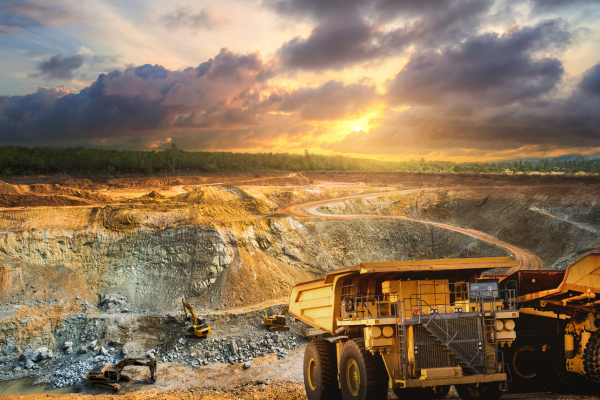
Venture capitalists are directing their investments towards emerging companies that are pioneering technologies to locate and extract valuable materials like lithium, cobalt, and nickel that are essential for powering electric vehicles, as reported by the Wall Street Journal.
These startups are harnessing expertise from diverse fields such as biochemical engineering and autonomous vehicles to innovate methods for identifying mineral-rich ores within rock formations and optimizing extraction processes for greater efficiency and cost-effectiveness.
This surge in mining-tech investments coincides with the commitment of automakers to ramp up electric vehicle production and consumers capitalizing on incentives offered by the Inflation Reduction Act.
As of the second week of August, mining-tech startups have secured a total of $350 million in funding this year. In the previous year, global mining-tech startups attracted $748 million in venture investments, according to data from PitchBook.
However, these figures are modest compared to other hot sectors like generative artificial intelligence, which amassed $1.7 billion in venture capital during the first quarter of this year. Experts suggest the relatively slower growth of mining tech can be attributed to its niche nature and the substantial upfront capital requirements often necessary for these startups to establish themselves, according to the report.
Nonetheless, the investments in mining tech carry an element of uncertainty, as pointed out by William Chavez, a professor of mineral engineering at the New Mexico Institute of Mining and Technology. Many technologies targeting critical materials for electric vehicle batteries are still in the developmental phase.
Despite the challenges, mining-tech startups are pressing forward. The Wall Street Journal highlights three prime examples:
Aether Biomachines is actively developing technology designed to aid in lithium extraction—a pivotal component of electric vehicle batteries. The technology is designed to extract lithium from deposits with lower concentrations than the traditionally cost-efficient ones. Aether’s approach involves combining robotics, machine learning, and synthetic biology to separate the target element from other materials in brine, or salty water. Aether recently concluded a Series A funding round, securing $49 million.
General Motors, for instance, announced its venture-capital arm’s leadership in a $50 million funding round for EnergyX, a Texas-based startup focused on enhancing lithium extraction and processing efficiency from salt flats.
Plotlogic, an Australian mining-tech company, recently announced the successful conclusion of a $28 million Series B funding round co-led by Galvanize. Plotlogic’s flagship commercial product integrates light-detection and ranging (lidar) equipment, commonly used in self-driving vehicles, with hyperspectral imaging sensors. These sensors measure a wide range of spectral bands, from visible to infrared, and are paired with machine learning algorithms to detect valuable mineral deposits within rock formations.
Cliff Ryan from Galvanize Climate Solutions underlined the shift in the allocation of venture and private-equity funds towards companies contributing to the climate impact thesis. These investors recognize that achieving goals related to decarbonization and electrification necessitates significant technological advancements.
Venture capitalists are increasingly focusing on the mining-tech sector, investing in startups that harness innovative technologies to enhance the extraction of critical materials for electric vehicles. While the industry faces challenges, such as lengthy development cycles, startups are driving forward with the support of investors who recognize the potential for significant technological breakthroughs. This trend reflects a broader shift in investment patterns towards initiatives aligned with environmental goals.
